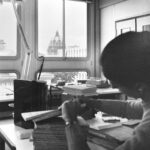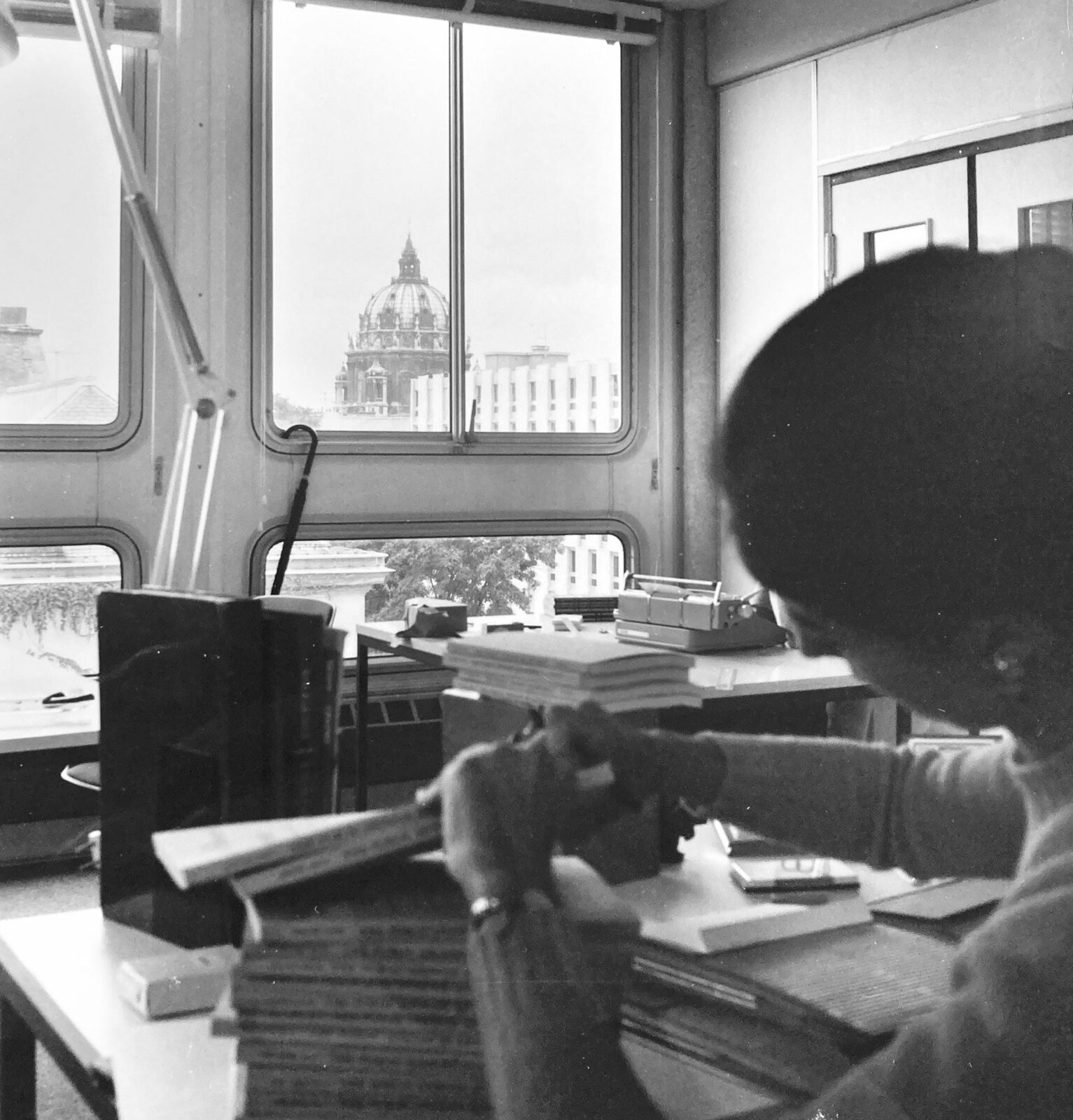This metal panel by the architect Jean Prouvé is one of the few surviving relics of the Institut de l’Environnement, which opened in Paris in 1969 shortly after the Hochschule für Gestaltung in Ulm closed. The institute was a continuation of the Hochschule für Gestaltung in terms of both personnel and subject matter. In the heated climate of international student protests and growing awareness of risks to the environment, the multidisciplinary research and design centre wanted to redefine the roles of architects and designers.
Starting from this façade element from the Institute’s building, in 2024 the Bauhaus Lab is studying the history of this school and its far-ranging networks, cultures of knowledge, and political contexts as well as its significance for the present. The results will be presented in an exhibition. And in a symposium the programme participants will discuss the role of socially conscious design, environmental education experiences and teachings with an array of guest speakers, thus assessing the question “What would our Institute de l’Environnement look like?” against the backdrop of contemporary practices and perspectives.
The event will be held in English.
2 – 5 pm > symposium
followed by the opening of the exhibition
“The Institute of the Environment was an intellectual melting pot, a crucible of exchanges and social and intellectual claims, where there was a desire to test new ideas in order to change society. … We had the idea, like the students of the schools that frequented the Institute, that the possibility of constructing an avant-garde way of thinking, with serious interrogations of methods, was possible there.” (Monique Eleb, 1969 – 1976)

